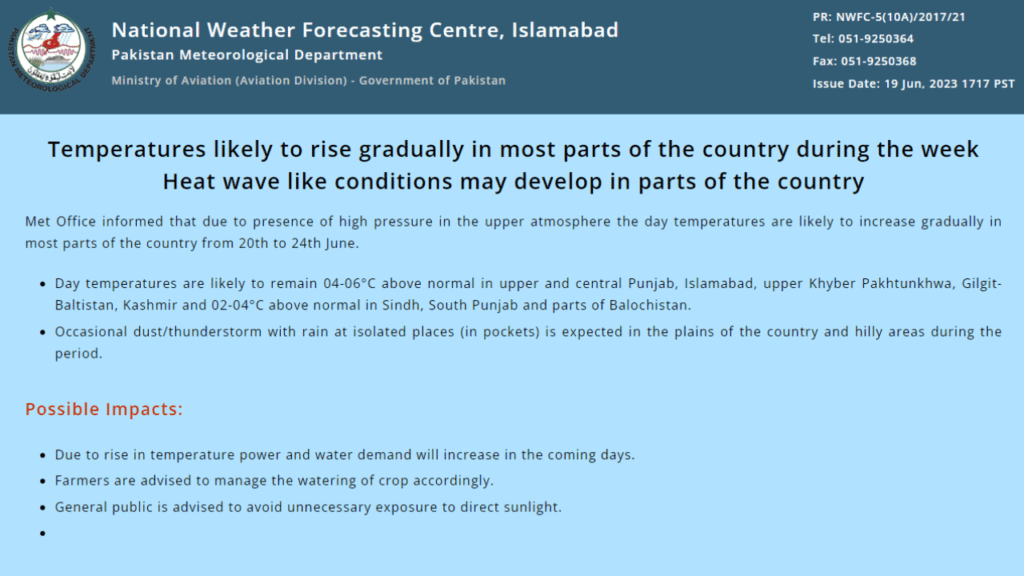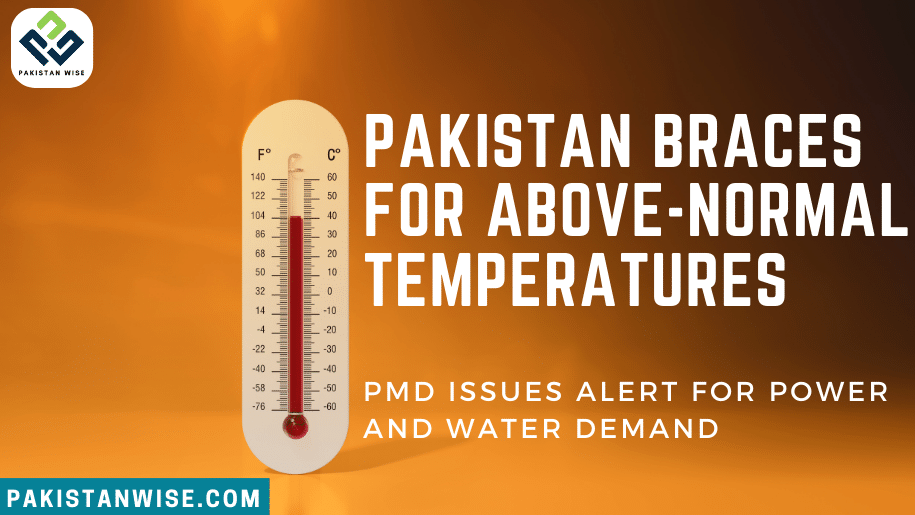PMD Issues Alert for Power and Water Demand
The Pakistan Metallurgical Department (PMD) has recently issued an alert regarding the anticipated rise in temperatures across various regions of the country. According to the department, day temperatures are expected to exceed the normal range by four to six degrees Celsius in upper and central Punjab, Islamabad, upper Khyber Pakhtunkhwa, and Kashmir. Additionally, the mercury is projected to be two to four degrees Celsius above average in southern Punjab and certain parts of Balochistan. This article delves into the implications of these above-normal temperatures, including increased power and water demand, as well as the precautions advised by the PMD.
Above-Normal Temperatures and Implications
The PMD’s warning of above-normal temperatures has raised concerns about potential repercussions. With the mercury soaring higher than usual, the department has emphasized that the demand for power and water resources is likely to surge in the coming days. This poses a significant challenge to the authorities responsible for ensuring uninterrupted supplies of these vital resources to the public.
As a result, it becomes crucial for both the government and citizens to take proactive measures to manage the situation effectively. As Pakistan’s rising heat faces a scorching surge in temperatures, the nation grapples with the escalating climate crisis, calling for urgent measures to combat the rising heat and safeguard its vulnerable communities.
PMD’s Advisory for Farmers

Recognizing the impact of soaring temperatures on the agricultural sector, the PMD has urged farmers to prioritize their watering strategies. With the increased heat, crops are more susceptible to moisture loss, which can adversely affect their growth and productivity. Therefore, it is crucial for farmers to manage irrigation effectively and ensure that crops receive an adequate water supply during this period. Implementing efficient irrigation techniques, such as drip irrigation or the use of sprinklers, can help conserve water while meeting the crops’ requirements.
General Public Precautions
In light of the impending heatwave, the general public has been advised to take necessary precautions to safeguard their health. One of the primary recommendations is to avoid unnecessary exposure to direct sunlight, particularly during peak daytime hours when temperatures are at their highest. This can significantly reduce the risk of heat-related illnesses such as heatstroke and dehydration. Additionally, individuals are encouraged to consume an ample amount of water to stay hydrated and use water judiciously to avoid putting undue strain on the water supply.
Heatwave Impact in Neighboring India
The PMD’s alert aligns with the recent red alert issued for extreme heat in neighboring India. India has been grappling with scorching temperatures, leading to unfortunate fatalities. Reports indicate that at least 98 people have lost their lives in the states of Uttar Pradesh and Bihar over the past three days due to heatwaves. The severity of the situation emphasizes the importance of preparedness and prompt action in Pakistan to mitigate the potential risks associated with rising temperatures.
Conclusion
As Pakistan prepares for above-normal temperatures, the PMD’s alert serves as a wake-up call for the government, farmers, and the general public to take necessary measures. By anticipating the surge in power and water demand, authorities can work towards ensuring uninterrupted supplies. Farmers, too, must adopt efficient irrigation techniques to protect their crops during this challenging period. Meanwhile, the general public should prioritize their health by avoiding direct sunlight and using water judiciously. By collectively implementing these precautions, Pakistan can better cope with the impact of soaring temperatures and minimize potential risks.

